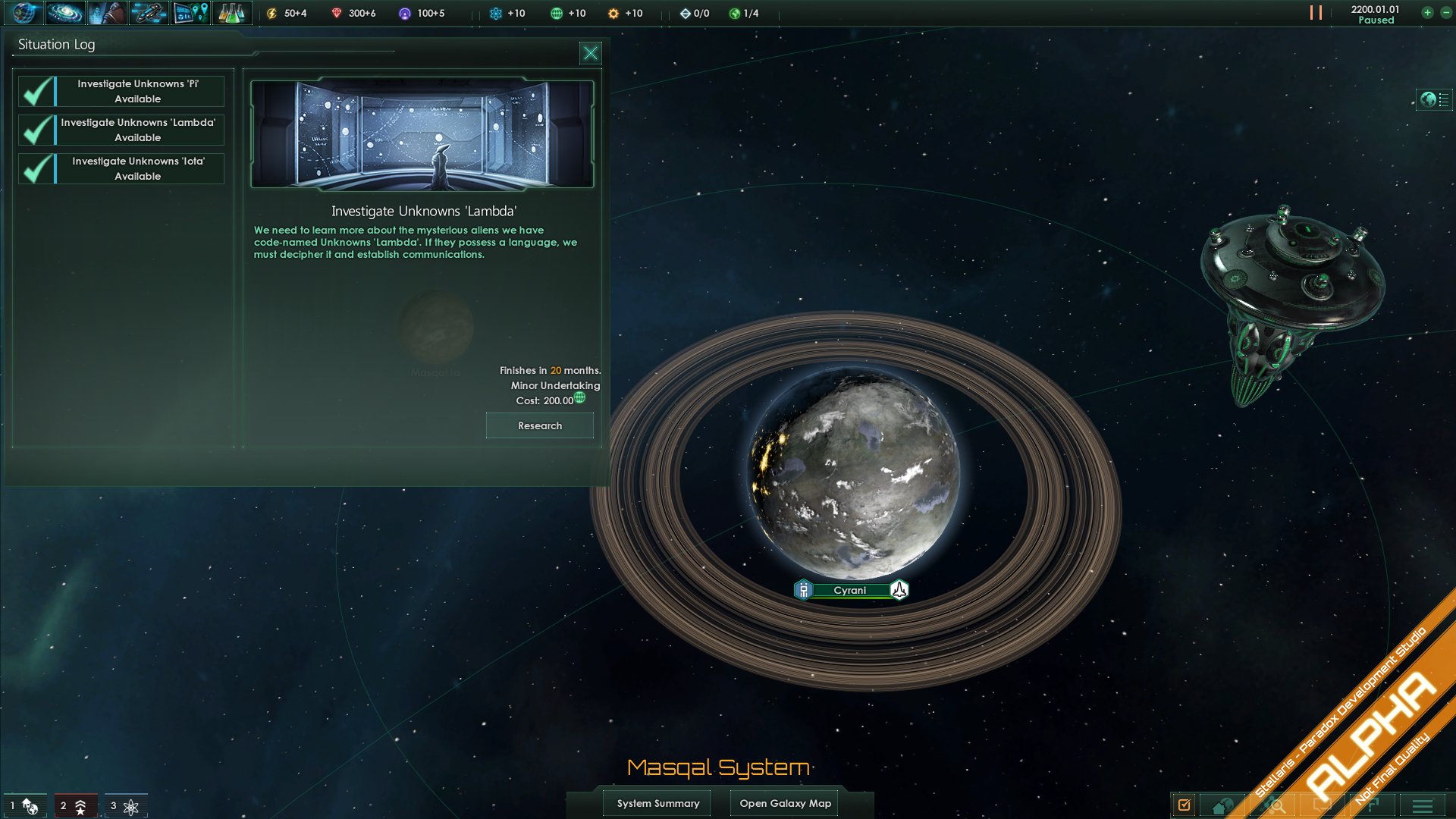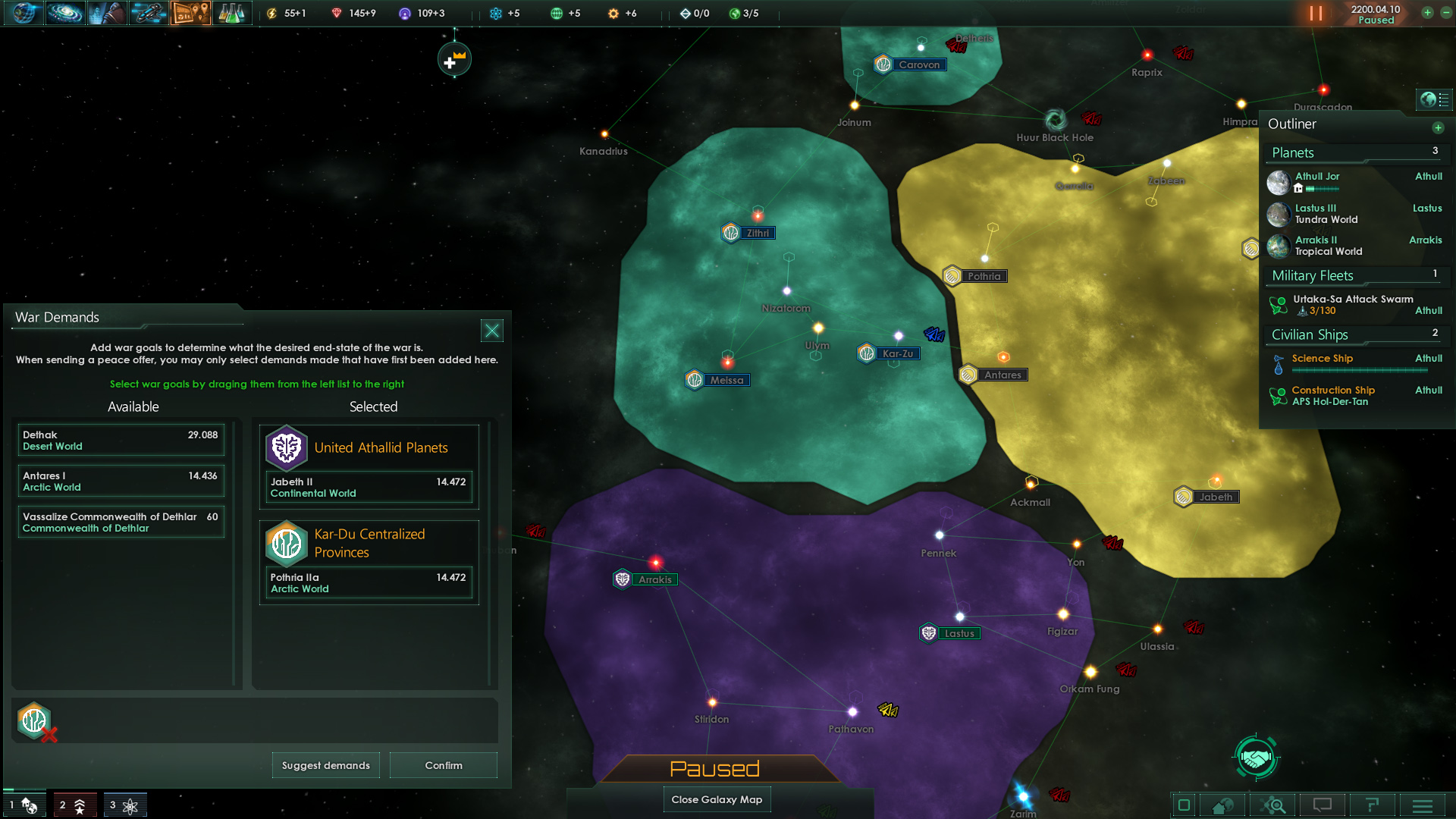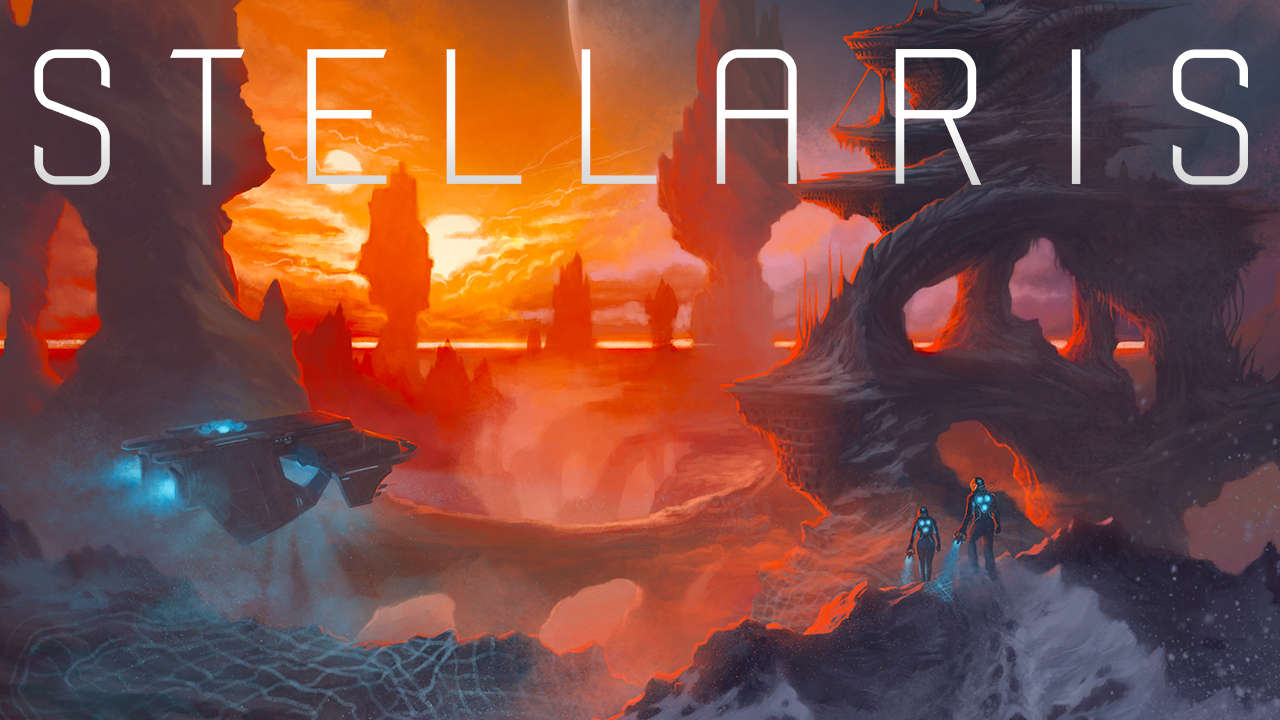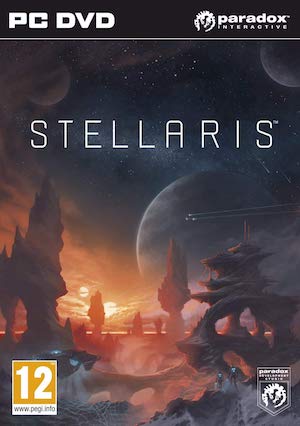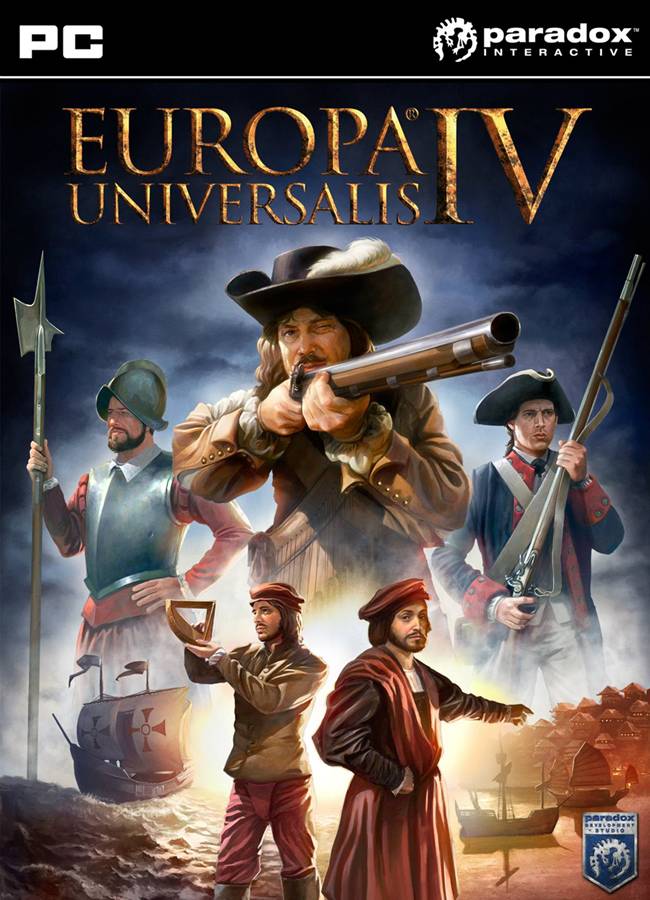
As a genre, 4X – short for “eXplore, eXpand, eXploit, and eXterminate” – is one of the most specialized forms of strategy out there. There’s nothing quite like exploring the vast regions of space, building your own empire up, allying with other factions or straight up exterminating everyone in grand military fashion. Though 4X games were big in the early 90s with Master of Orion and Civilzation, the genre has seen a major uptick in activity for the past few years with Endless Space, Galactic Civilizations and many more. That legacy appears set to continue with the likes of Stellar, Paradox Development Studio’s latest 4X title that will challenge many players’ notions of what an end-game should look like.
GamingBolt spoke Henrik Fåhraeus, game director at the studio, for his thoughts on the setting, the overall mechanics and exactly how frenzied the end-game is looking.
"The galaxy is filled with rival empires (exactly how many, you get to decide at the game’s start). Normally, these are complete unknowns to you. That is, they are procedurally generated, with different ethics, species class, flag, name lists, portrait layers, etc."
The 4X strategy genre hasn’t exactly been the most bustling as of late. What prompted the development of Stellaris in that regard?
Henrik Fåhraeus: Heh, well, when we started developing Stellaris, we saw that as a great opportunity. That is, the relative lack of decent 4X space games (with some notable exceptions). Since then, they seem to be coming out left and right, which is great for fans of the genre, of course. Stellaris offers a unique blend of features though, with its focus on the first X (eXplore), pausable realtime, great multi-player support and Grand Strategy warfare and diplomacy.
What is the story and setting of Stellaris?
Henrik Fåhraeus: Your species has just discovered FTL (faster than light travel) and is about to hit its most crucial era; the Interstellar Age. That’s really all there is in terms of story and setting. Stellaris is about discovering the unknown and overcoming the perils of a vast galaxy. The idea is to make the game as replayable as possible; with every new game you start offering a new story.
What can you tell us about the various factions and races in the game and how they affect one’s success?
Henrik Fåhraeus: The galaxy is filled with rival empires (exactly how many, you get to decide at the game’s start). Normally, these are complete unknowns to you. That is, they are procedurally generated, with different ethics, species class, flag, name lists, portrait layers, etc. There are also various special factions to discover, such as “Fallen Empires” and pre-space age civilizations. In order to win the game and secure the future of your species, most of these will have to be overcome…
Diplomacy and empire management are perhaps the most important aspects of a 4X title. How does Stellaris handle these aspects and what improvements have been over previous 4X games? How does the overall flow and direction of the game change depending on the alliances formed or the approaches that players take?
Henrik Fåhraeus: A lot of the diplomacy is similar to our historical Grand Strategy titles, such as Europa Universalis. For example, unlike traditional 4X games, in Stellaris a planet is not yours just because you successfully invaded it; you still need to negotiate for it in the peace deal. In fact, right when you declare a war, you need to specify what your goals are.
"The late game crises are mainly designed to keep the final stages of the game interesting and keep you on your toes even when it feels like you’ve already won."
This is very familiar for those who have played a Paradox Grand Strategy Game before, but should be new to those who haven’t. The ways of achieving a joint victory through an alliance or Federation are also deeper and more developed than I’ve seen in a 4X game. Of course, a lot of these options depend on what kind of empire you are playing and your initial choice of Ethics.
How does combat play out? How intensive and in-depth will it be for the more war-mongering players?
Henrik Fåhraeus: Combat plays out much like in our historical games. That is, it is not tactical; you cannot give orders to individual ships. You can, however, design your ships using a quite advanced ship designer, and there are a lot of ways you can load them out to be more effective against different types of enemies. Unlike our other games, though, combat is quite visual and pretty to look at! So, enjoy the fireworks and then think about how to alter your ship designs…
Late game events to add spice to the player’s campaign have been discussed. Can you tell us more about them?
Henrik Fåhraeus: The late game crises are mainly designed to keep the final stages of the game interesting and keep you on your toes even when it feels like you’ve already won. Some are tied to “dangerous technologies” that you have researched, and others are more random, but you will almost never see more than one happen in the same game.
Will there be any additional challenges that players can pursue to further strengthen their empire outside of the story?
Henrik Fåhraeus: There are many unique entities and “side quests” in the game that can yield very interesting rewards. For example, many technologies cannot be researched normally, but have to be found through exploration or reverse engineering.
"At least 32 people can play the game together, forming whatever alliances or rivalries they desire. Stellaris also has working “hot join”, which is new for us."
How long will Stellaris be in terms of its campaign mode?
Henrik Fåhraeus: That depends on which size you pick for the galaxy at game start and how much you want to micromanage your empire (which speed you run the game at, etc.) It is hard to give you an average, but 60 hours won’t get you very far in a huge galaxy.
What kind of multiplayer modes are being offered with Stellaris?
Henrik Fåhraeus: At least 32 people can play the game together, forming whatever alliances or rivalries they desire. Stellaris also has working “hot join”, which is new for us. I.e. players can join ongoing games without restarting the game.
Is there any chance Stellaris will ever come to PS4 and X1?
Henrik Fåhraeus: There is a chance, but it’s unfortunately not something I can speculate about (not the Neo either.)
Is there anything else you want to tell us before we let you go?
Henrik Fåhraeus: I think the game has been pretty thoroughly covered at this point, apart from some things I’d rather keep secret until it’s released! However, do watch our livestreams on Twitch for a raw look at how the game actually plays during our “Extraterrestrial Thursdays” (https://www.twitch.tv/paradoxinteractive/v/54999695)!








